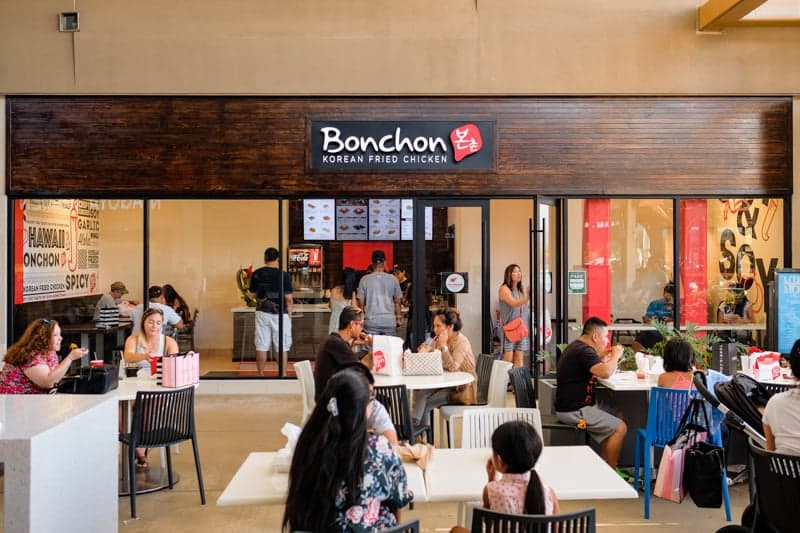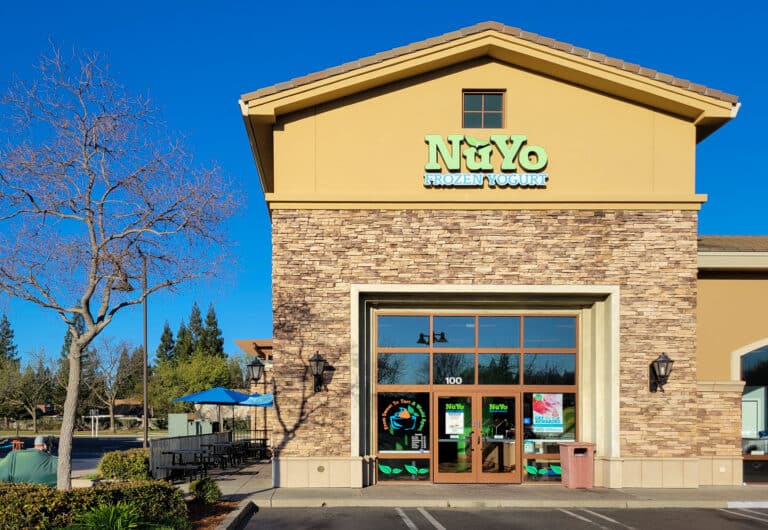Bonchon Franchise FDD, Profits & Costs (2025)

Bonchon, a renowned franchise specializing in Korean fried chicken, has made a significant impact since its inception in Busan, South Korea in 2002.
Founded by Jinduk Seo, Bonchon, which translates to “My Hometown” in Korean, was born out of Seo’s passion for sharing the flavors of his hometown with the world.
After two years of perfecting the signature sauces and fried chicken recipe, Seo introduced Bonchon to the bustling city of New York in 2006, where it quickly became a sensation, evidenced by the need for police to manage traffic around the new restaurant.
Initial Investment
How much does it cost to start a Bonchon franchise? It costs on average between $591,000 – $1,313,000 to start a Bonchon franchised restaurant.
This includes costs for construction, equipment, inventory, and initial operating expenses. The exact amount depends on various factors, including the type of restaurant you choose, the location, and whether the franchisee chooses to lease or purchase the property. Indeed, Bonchon offers 2 types of franchises:
| Restaurant Type | Initial Investment Range |
|---|---|
| Dine-In Restaurant | $1,005,136 to $1,312,626 |
| Fast Casual Restaurant | $775,036 to $1,077,926 |
| Delivery and Carryout Only | $591,436 to $837,376 |
We are summarizing below the main costs associated with opening a Bonchon Dine-In Restaurant. For more information on costs required to start a Bonchon franchise, refer to the Franchise Disclosure Document (Item 7).
| Type of Expenditure | Amount |
|---|---|
| Initial Franchise Fee | $35,000 |
| Pre-Opening Training Expenses | $6,321 – $19,711 |
| Real Property | $6,700 – $25,000 |
| Construction and Leasehold Improvements | $500,000 – $600,000 |
| Equipment | $230,000 – $250,000 |
| Furniture and Fixtures | $80,000 – $100,000 |
| Smallwares and Small Appliances | $23,500 – $25,000 |
| Uniforms | $5,000 – $8,000 |
| Computer and Point of Sale System | $20,000 – $50,000 |
| Inventory to Begin Operating | $9,500 – $12,500 |
| Security Deposits, Licenses, and Prepaid Expenses | $5,000 – $15,000 |
| Professional Fees | $4,500 – $6,000 |
| Signs | $10,000 – $30,000 |
| Architect and Engineering Fees | $35,000 – $46,000 |
| Opening Advertising | $5,000 – $10,000 |
| Pre-Opening Labor | $9,615 – $20,415 |
| Additional Funds (Initial Period – 3 Months) | $20,000 – $60,000 |
| TOTAL | $1,005,136 – $1,312,626 |
Average Revenue (AUV)
How much revenue can you make with a Bonchon franchise? A Bonchon franchised restaurant makes on average $1,358,000 in revenue (AUV) per year.
Here is the extract from the Franchise Disclosure Document:

Bonchon Franchise Disclosure Document
Frequently Asked Questions
How many Bonchon locations are there?
As of the latest data, Bonchon operates approximately 147 locations in the United States. Globally, the brand has around 500 locations, with plans to expand to 1,000 locations within the next five years.
This growth is driven by Bonchon’s unique offerings, including its signature Korean fried chicken and flexible restaurant formats like full-service, fast-casual, and non-traditional settings such as malls and hotels.
What is the total investment required to open a Bonchon franchise?
The total investment required to open a Bonchon franchise ranges from $591,000 to $1,313,000.
What are the ongoing fees for a Bonchon franchise?
For a Bonchon franchise, the ongoing fees include a royalty fee that ranges from 5% of gross revenue. Additionally, franchisees are required to pay a marketing fee of 2.5% to 5% of their gross revenue, which covers national and local marketing efforts. These fees help maintain brand consistency and support marketing initiatives across all Bonchon locations.
Who owns Bonchon?
Bonchon is owned by VIG Partners, a private equity firm based in South Korea. VIG Partners acquired Bonchon in 2018, taking control of the brand’s global operations.
The founder of Bonchon, Jinduk Seh, established the company in 2002 in South Korea and expanded the brand internationally, including into the United States in 2006. Despite the acquisition, Bonchon remains rooted in its Korean heritage, particularly through its signature Korean fried chicken and sauces.
Disclaimer
Disclaimer: This content has been made for informational and educational purposes only. SharpSheets is an independent educational resource and is not affiliated with, endorsed by, or representing any franchisor mentioned on this website. Where noted, figures are taken from the franchisor’s Franchise Disclosure Document (FDD). In some cases, we may provide independent calculations or estimates based on publicly available information. We do not make any representation or warranties with respect to the accuracy, applicability, fitness, or completeness of the information presented in the article. You should not construe any such information or other material as legal, tax, investment, financial, or other professional advice. Nothing contained in this article constitutes a solicitation, recommendation, endorsement, advertisement, or offer to buy or sell any franchises, securities, or other financial instruments in this or in any other jurisdiction in which such solicitation or offer would be unlawful under the franchise and/or securities laws of such jurisdiction.
All content in this article is information of a general nature and does not address the detailed circumstances of any particular individual or entity. Nothing in the article constitutes professional and/or financial and/or legal advice, nor does any information in the article constitute a comprehensive or complete statement of the matters discussed or the law relating thereto. You alone assume the sole responsibility of evaluating the merits and risks associated with the use of any information or other content in this article before making any decisions based on such information or other content.




